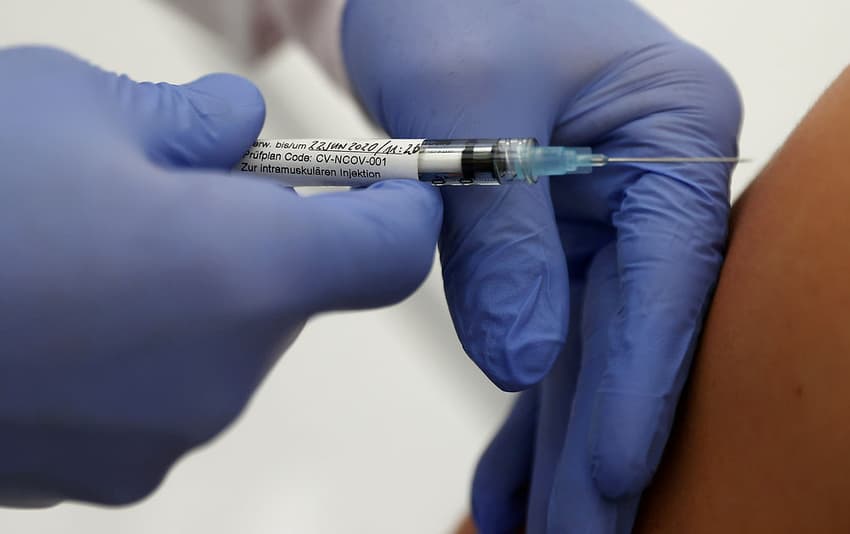One in five in Denmark unsure over Covid-19 vaccination

A recent survey showed that 70 percent of people in Denmark would take vaccination against Covid-19 once one becomes available, but one in ten said they would not.
The remainder said they were currently unsure about whether they would want a coronavirus vaccine, according to the poll conducted by Epinion for national broadcaster DR.
As such, a majority of people asked in the survey are receptive to a vaccine against coronavirus, but a significant number are in doubt about or against it.
Specifically, the poll asked people in Denmark whether they would say ‘yes’ or ‘no’ to a coronavirus vaccine should one be approved by the country’s health authorities.
The poll was conducted in the first week of September and 1,003 Danes over the age of 18 were asked, DR writes.
69.4 percent responded that they would say ‘yes’ to a vaccine, 11.2 percent said ‘no’ and 18.4 percent said ‘don’t know’. One percent preferred not to answer.
70 percent of the Danish population accepting vaccination against Covid-19 is not an optimal amount if the virus is to be eradicated, an expert said.
“This is a vaccine which in the final reckoning is meant to solve the problem, so we can eradicate the disease [Covid-19, ed.] and overcome all the problems created by Covid-19,” Lars Østergaard, a professor of infectious disease at Aarhus University, told DR.
But Østergaard and a second expert, Jens Lundgren, both acknowledged in comments to the broadcaster that they could see why people may have answered ‘don’t know’ in the poll.
“I think I would have answered ‘don’t know’, because it’s an impossible question to answer because we don’t know all of the factual circumstances relating to the vaccine,” said Lundgren, a professor of infectious disease at the University of Copenhagen and Rigshospitalet as well as an advisor to the Danish Health Authority.
Clear communication from health authorities in relation to a forthcoming vaccine is key in maximising the number of people who will take it, according to the professor.
“In a crisis situation, the only communication that will do is completely transparent and honest communication. You can’t promise too much. You shouldn’t try to cover points of difficulty. Everything must be said completely clearly and plainly,” Lundgren said.
READ ALSO: Is Denmark right to target its new restrictions on nightlife?
Comments
See Also
The remainder said they were currently unsure about whether they would want a coronavirus vaccine, according to the poll conducted by Epinion for national broadcaster DR.
As such, a majority of people asked in the survey are receptive to a vaccine against coronavirus, but a significant number are in doubt about or against it.
Specifically, the poll asked people in Denmark whether they would say ‘yes’ or ‘no’ to a coronavirus vaccine should one be approved by the country’s health authorities.
The poll was conducted in the first week of September and 1,003 Danes over the age of 18 were asked, DR writes.
69.4 percent responded that they would say ‘yes’ to a vaccine, 11.2 percent said ‘no’ and 18.4 percent said ‘don’t know’. One percent preferred not to answer.
70 percent of the Danish population accepting vaccination against Covid-19 is not an optimal amount if the virus is to be eradicated, an expert said.
“This is a vaccine which in the final reckoning is meant to solve the problem, so we can eradicate the disease [Covid-19, ed.] and overcome all the problems created by Covid-19,” Lars Østergaard, a professor of infectious disease at Aarhus University, told DR.
But Østergaard and a second expert, Jens Lundgren, both acknowledged in comments to the broadcaster that they could see why people may have answered ‘don’t know’ in the poll.
“I think I would have answered ‘don’t know’, because it’s an impossible question to answer because we don’t know all of the factual circumstances relating to the vaccine,” said Lundgren, a professor of infectious disease at the University of Copenhagen and Rigshospitalet as well as an advisor to the Danish Health Authority.
Clear communication from health authorities in relation to a forthcoming vaccine is key in maximising the number of people who will take it, according to the professor.
“In a crisis situation, the only communication that will do is completely transparent and honest communication. You can’t promise too much. You shouldn’t try to cover points of difficulty. Everything must be said completely clearly and plainly,” Lundgren said.
READ ALSO: Is Denmark right to target its new restrictions on nightlife?
Join the conversation in our comments section below. Share your own views and experience and if you have a question or suggestion for our journalists then email us at [email protected].
Please keep comments civil, constructive and on topic – and make sure to read our terms of use before getting involved.
Please log in here to leave a comment.